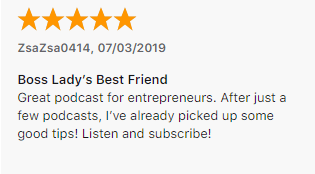The Fast-Track Woman Podcast: Episode #42
How to Dolly Parton Your Business (and Write A-List Emails) with Jenn Mayers
Click the Play Button + Listen Below.
Meet Podcast Guest, Jenn Mayers
Our guest today hails from Baton Rouge, Louisiana, y'all.
She started her first company at 25, her work has reached millions of people around the world, and to date, she’s helped her clients collectively generate over $14.1 million in sales.
She’s a world-traveling homebody, copywriter, and conversion specialist. Her mission: to help you profit from high-converting copy so your life revolves around your joy (not your laptop).
Help me give a big warm welcome… Introducing… Jenn Mayers!

About this Podcast Episode.

Terra Bohlmann interviews Jenn Mayers, a world-traveling homebody, copywriter, and conversion specialist. Jenn's work has reached millions of people around the world, and to date, she’s helped her clients collectively generate over $14.1 million in sales. Her mission is to help you profit from high-converting email copy so your life revolves around your joy (not your laptop). Terra and Jenn talk about how you can set your "weird free", own who you are, and be love-able just like Dolly Parton. Jenn also shares the biggest mistakes people are making in their emails right now and how to stand out in people's inboxes. If you are ready to learn how to make more money by establishing authentic relationships by sending better emails, you are going to love this episode.
Resources, Tools, and Links Mentioned in this Episode.
- terrabohlmann.com/consult
- Apply for your complimentary Fast-Track Session with Terra HERE.
- https://www.jennmayers.com/
Read and Download the Transcript for this Episode.
Interact More with the Podcast.
Great Reviews Make My Heart Sing.

Much appreciation from one happy Podcast Host!
Are you subscribed to my podcast?
If you’re not, you should subscribe so you never miss an episode.
And...I invite you to take it a step further + leave a 5-Star review.
To give a review, click the image and select “Ratings and Reviews” and “Write a Review” on iTunes.
Share a takeaway what you learned and let other women entrepreneurs know why they should listen to the podcast.
Reviews help other women entrepreneurs find my podcast and I truly enjoy reading them.
It takes a community of like-minded women to help other like-minded women succeed.
(Oh, by the way, I love to do shout-outs on future episodes and you just may hear your name!)



